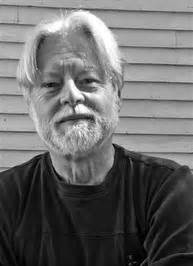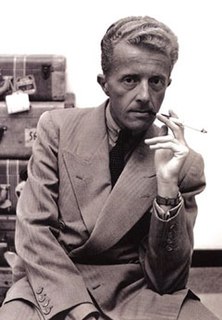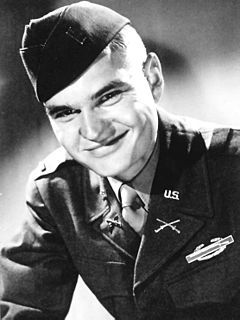A Quote by Thomas H. Cook
A traveler enters the world into which he travels, but a tourist brings his own world with him and never sees the one he's in.
Related Quotes
Exploration belongs to the Renaissance, travel to the bourgeois age, tourism to our proletarian moment.The explorer seeks theundiscovered, the traveler that which has been discovered by the mind working in history,the tourist that which has been discovered by entrepreneurship and prepared for him by the arts of mass publicity.If the explorer moves toward the risks of the formless and the unknown, the tourist moves toward the security of pure cliché. It is between these two poles that the traveler mediates.
When the father dies, he writes, the son becomes his own father and his own son. He looks at is son and sees himself in the face of the boy. He imagines what the boy sees when he looks at him and finds himself becoming his own father. Inexplicably, he is moved by this. It is not just the sight of the boy that moves him, not even the thought of standing inside his father, but what he sees in the boy of his own vanished past. It is a nostalgia for his own life that he feels, perhaps, a memory of his own boyhood as a son to his father.
Pathology has made us acquainted with a great number of states in which the boundary lines between the ego and the external world become uncertain or in which they are actually drawn incorrectly. There are cases in which parts of a person's own body, even portions of his own mental life - his perceptions, thoughts and feelings -, appear alien to him and as not belonging to his ego; there are other cases in which he ascribes to the external world things that clearly originate in his own ego and that ought to be acknowledged by it.
A man must generally get away some hundreds or thousands of miles from home before he can be said to begin his travels. Why not begin his travels at home? Would he have to go far or look very closely to discover novelties? The traveler who, in this sense, pursues his travels at home, has the advantage at any rate of a long residence in the country to make his observations correct and profitable. Now the American goes to England, while the Englishman comes to America, in order to describe the country.
The artist should paint not only what he sees before him, but also what he sees within him. If, however, he sees nothing within him, then he should also refrain from painting that which he sees before him. Otherwise, his pictures will be like those folding screens behind which one expects to find only the sick or the dead.
The ignorant man is not free, because what confronts him is an alien world, something outside him and in the offing, on which he depends, without his having made this foreign world for himself and therefore without being at home in it by himself as in something his own. The impulse of curiosity, the pressure for knowledge, from the lowest level up to the highest rung of philosophical insight arises only from the struggle to cancel this situation of unfreedom and to make the world one's own in one's ideas and thought.
The pitch to which he was aroused was tremendous. All the fighting blood of his breed was up in him and surging through him. This was living., though he did not know it. He was realizing his own meaning in the world; he was doing that for which he was made.... He was justifying his existence, than which life can do no greater; for life achieves its summit when it does to the uttermost that which it was equipped to do.

































